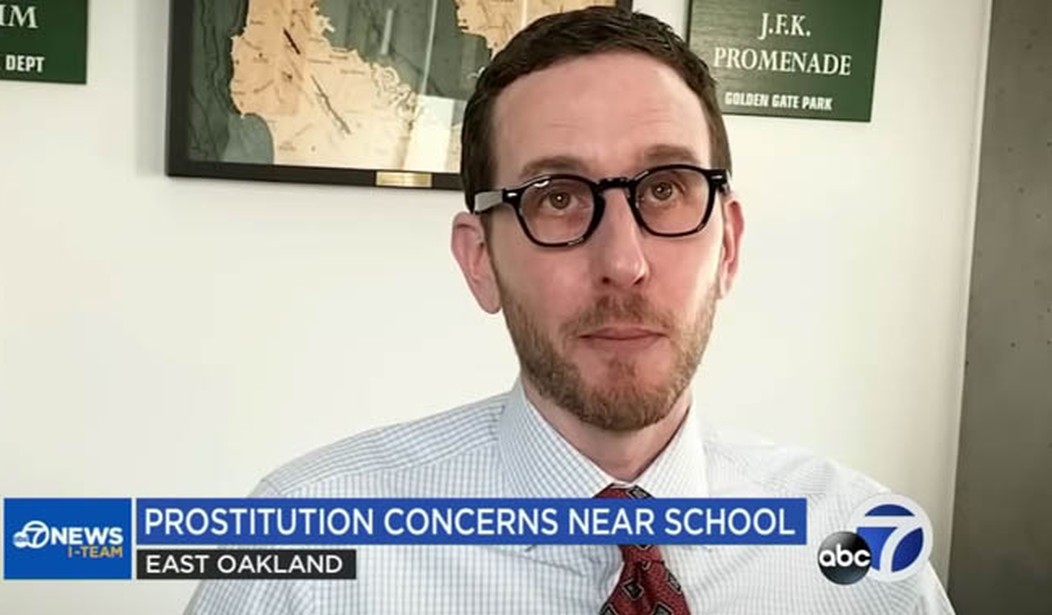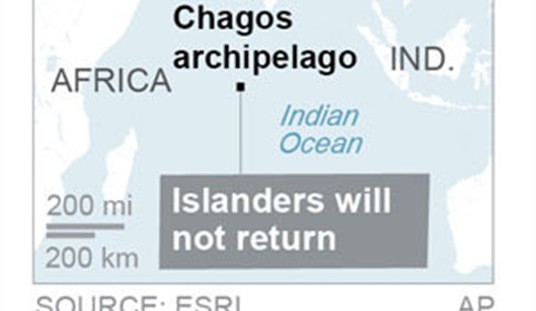Ezra Klein interviewed California State Sen. Scott Wiener for his NY Times podcast. If you’re not familiar with Scott Weiner, we’ve written about him a few times. San Francisco has seen an uptick in street prostitution lately which was particularly bad on Capp street. Police said the problem was connected to a new law which made loitering legal in the name of protecting trans people.
Previously, loitering with the intent to engage in prostitution was illegal. But SB 357, a bill introduced by State Sen. Scott Wiener repealed that law, in part because he found it to be disproportionately targeting transgender women.
“It allowed police officers to arrest a person, not based on what they did, but based solely on how a person looks,” said Sen. Wiener. “So an officer could arrest someone because they were wearing tight clothing, high heels, and extra lipstick.”
That bill went into effect at the start of this year but Abigail Shrier has reported that the situation on the street started to change almost the moment the bill passed last summer. Sen. Wiener is also a big supporter of supervised consumption sites, i.e. places where addicts are monitored while taking drugs.
So, to put it mildly, he pretty far left even for San Francisco. So it’s somewhat surprising to hear him talk about the constant low-level crime in the city as an actual problem that needs to be solved. Ezra Klein, who lives in the city, introduces the subject by talking about some of the wild things he’s seen on the streets.
Klein: …there is a lot of what people experience as disorder on the streets. You walk around, and you see people doing drugs very much out in the open. The Tenderloin is like just — it’s wild, what happens there. And it is distinctive. I mean, you can find things like this in other places — Skid Row in LA. But there is a sense people have that San Francisco has made a political decision or a policing decision to live with more disorder, for one reason or another. How do you think about that?
Wiener: You’re absolutely right that we have — of the mid-sized to big cities, we have one of the lowest murder rates. We have a fairly high property crime rate, and that does really impact people when their homes are getting broken into, or their cars are getting broken into, or vandalism happens.
Klein: It scares people when your home gets broken into.
Wiener: It’s very scary.
Klein: We’ve had our car broken into a bunch, but there is a weird thing here that has not happened to me elsewhere, where just, everybody says, you can’t leave anything in your car. When people say that, it speaks to a pervasiveness of a fear.
Wiener: Well, and for people who need their car to get to work, it’s a problem. And it’s terrifying when someone breaks into your home, especially if you happen to be there.
Klein: Yes.
Wiener: And so there are crime issues in San Francisco. But we also have to be clear that even if violent crime is low, if you’ve been victimized, or your friend or your neighbor or your kid or your husband or wife has been victimized, violent crime is high for you. And so I think it’s really important not just to rely on the statistics, because it’s also about people’s personal experiences and what they’re going through.
And when you see someone on meth on the street, acting in a really bizarre and scary way, that is really scary for people. Because also, they don’t know what that person is going to do. And so yes, people are concerned. I think people have a right to be concerned. And there are things happening on our streets that are not OK.
And some things — like for example, in the Tenderloin, the open-air drug market there — I don’t think that arresting drug dealers is going to end addiction. It won’t. People will find another way to get drugs. But that drug dealing has huge impacts, public safety impacts, on that neighborhood. And if you’re someone who’s raising a kid in the Tenderloin — and there are quite a few kids in Tenderloin — and that kid has to walk through a drug market to get to school, that’s a huge problem.
And so I think sometimes San Francisco gets unfairly tarred as sort of this Mad Max Thunderdome situation, and it’s absolutely not. But there are parts of the city where there are real issues, and there are some really legitimate safety issues that we need to do more to deal with.
When Wiener says the property crime rate in San Francisco is fairly high I think he’s minimizing. The property crime rate in San Francisco is the worst in the country among the 25 largest cities.
In any case, it’s interesting to hear Wiener talk this way because when I was writing about the street prostitution problem, which included violence against the women involved and also fear among the residents living in the area, Sen. Wiener didn’t seem concerned at all. In fact he flatly denied that the problem had anything to do with his bill legalizing loitering.
So I can’t help but wonder if this concern for the feelings of crime victims isn’t just something progressives have learned to say in the wake of the recall of DA Chesa Boudin. Boudin, like Wiener, was very far left and also never accepted any blame for any of the city’s crime problems. But it became clear to everyone after his recall that even in San Francisco voters didn’t like being told things were fine when they weren’t.
To his credit, Klein didn’t let it drop there but pushed a little harder on what might be called the city’s permissive attitude toward crime.
Klein: But let me get at a wrinkle of this. So I lived in D.C. for about 14 years, and crime was much worse there. And violent crime was much closer to me there. The number of my friends who got mugged — one of my dear friend’s roommates got shot. Terrible things happened constantly.
And so they were having a lot of trouble getting crime under control. But what nobody seemed to believe, even if they believed that the policing was ineffective or the government was ineffective, was that the government was tolerating it. And what is different about the politics of crime here, rightly or wrongly — because again, there is actually less crime here than there was in D.C. When I was there, certainly less violent crime — is that there is a perception, widespread, that at least disorder — levels of disorder, levels of basic crimes — shoplifting, things like that — are tolerated here, in a way they aren’t elsewhere.
Wiener: Well, I think for a long time — and I’m not going to comment on whether this was an intentional policy choice or not — but at least in effect, there were things that were tolerated. So car break-ins — I think for a long time, the attitude was, that’s between you and your insurance company. Shoplifting — it was not a high priority.
Even the Tenderloin, I think, was, in some ways, effectively a containment zone, which was horrific for the residents, including many older people, people with disabilities, immigrant families, who are living in the Tenderloin. And so I think for some types of problems and crimes, there was a tolerance. And I think that’s been changing over time. But the other thing that always keep in mind. So San Francisco is the best city on the planet. People love writing San Francisco’s obituary. It’s like almost like a national pastime.
Every year or two, there’s a big article proclaiming that San Francisco is dead. We always come back.
This kind of rah-rah hand-waving might work for Sen. Wiener’s voters but it’s not terribly convincing for those who can actually step back and look at what is happening in the city.
He’s also setting up a straw man argument. I’m a conservative critic of San Francisco but I don’t actually believe the city is about to fall into the sea and disappear. Something called San Francisco will always be there. The question is what kind of place is it and do people want to live there? Increasingly the answer to that question has been no.
California’s population has declined for the past two years and San Francisco had one of the highest per capital population declines in the country at 6.7 percent. A San Francisco Chronicle poll last September found that 65% of the city’s residents said things were worse now than when they first moved to the city and about a third of respondents said they were thinking about leaving in the next three years.
Bottom line, things are bad in the city and people feel it. Major retailers keep closing up shop and struggling to deal with the rampant crime even as Sen. Wiener is telling the NY Times the city is bouncing back from too great a tolerance for disorder. Is it really bounding back, Senator? Where is the evidence?
All I can say is that I don’t see it. In fact, I see Sen. Wiener and his policies as being frequently on the wrong side of the effort to restore order. His policies certainly didn’t bring order to Capp Street according to the police. It really makes me wonder if what he says and what he believes aren’t two very different things.








Join the conversation as a VIP Member